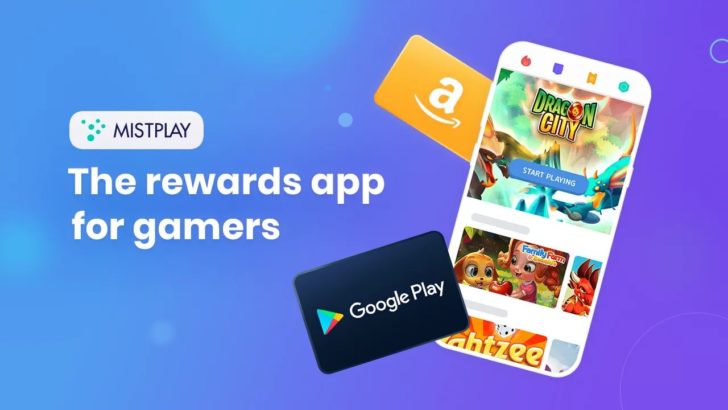Play to earn rewards: a straightforward way to earn while having fun in your favorite games
Play to earn rewards: a straightforward way to earn while having fun in your favorite games
Blog Article
Just How Play-to-Earn Rewards Are Changing the Gaming Experience
The advent of Play-to-Earn rewards notes a substantial development in the gaming landscape, moving the emphasis from simple amusement to genuine financial participation. This makeover invites players to spend not only their time however also their financial resources, promoting a feeling of possession and deeper involvement within video game environments. As varied demographics accept these possibilities, brand-new neighborhoods emerge, blurring the lines between recreation and investment. This transition elevates vital inquiries regarding sustainability and the future of pc gaming. What implications could this have for the industry and its players?

Development of Gaming Versions
The landscape of gaming has undergone a considerable improvement over the decades, advancing from typical pay-to-play designs to extra cutting-edge structures that focus on customer interaction and monetization. Video games were largely sold as standalone items, needing upfront repayments for gain access to. This version, while efficient in creating revenue, commonly limited gamer interaction and area structure.

In the last few years, the rise of blockchain innovation has presented play-to-earn systems that essentially modify pc gaming characteristics. These versions not just provide a platform for players to gain rewards however also equalize the gaming economy, allowing customers to have in-game properties. This advancement shows a broader pattern in the direction of community-driven experiences, where programmers and gamers collaborate in forming the video gaming landscape, inevitably redefining just how value is viewed in the pc gaming market.
Benefits of Play-to-Earn Systems
Unlocking new opportunities for player involvement, play-to-earn systems use a series of benefits that fundamentally boost the pc gaming experience. These systems empower players by offering substantial rewards for their time and effort, fostering a feeling of possession and investment in the game. This innate motivation drives gamers to involve even more deeply, checking out video game auto mechanics and communities that they may otherwise overlook.
Additionally, play-to-earn versions democratize pc gaming by leveling the playing area. Gamers from numerous backgrounds can maximize their skills and creativity, allowing new entrants to experience monetary advantages that were commonly booked for designers and authors. This shift urges a more diverse gamer base, enriching the pc gaming community with diverse viewpoints and experiences.
In addition, play-to-earn systems promote area structure, as gamers work together and complete within decentralized atmospheres. This communication cultivates social connections that enhance satisfaction and retention, as players feel a feeling of belonging.
Lastly, these systems can lead to enhanced durability for video games, as continual gamer engagement often translates into continual passion and financial investment in future models or developments, ensuring a dynamic gaming landscape.
Economic Influence On Players
Play-to-earn systems not just boost gamer interaction yet likewise have considerable financial effects for people entailed. These systems allow gamers to monetize their time and skills, transforming video gaming from a leisure task into a feasible revenue resource. As players make copyright or in-game assets that can be traded or offered in real-world markets, they obtain financial incentives that can substantially influence their personal economic situations.
The economic version fosters a new age of entrepreneurship, as gamers can spend in numerous pc gaming ecosystems or create methods to enhance their earnings. This potential for earnings generation brings in a varied market, consisting of those in areas with limited work possibilities - play to earn rewards. Many gamers are now watching gaming not simply as amusement yet as a pathway to economic empowerment.
Nonetheless, it is essential to identify the volatility related to cryptocurrencies and the capacity for market fluctuations to influence profits. Players need to navigate these dangers while balancing their video gaming and monetary activities. Generally, the economic effect on gamers is extensive, reshaping their connection with video gaming and opening up avenues for wide range production in a significantly digital economic situation.
Community Structure in P2E Games

Gamers in P2E environments often create guilds or partnerships, producing networks that assist in source sharing, calculated preparation, and common support. These teams often take part in cooperative missions or competitors, further strengthening their bonds and enhancing the total pc gaming experience. In addition, community-driven events, such as tournaments and social gatherings, serve to unify players, foster friendship, and incentivize engagement.
Additionally, designers actively engage with their areas, integrating comments link and pointers that shape video game development. This joint method not only equips players yet also makes certain that games advance in placement with gamer passions, improving contentment and long-lasting involvement. Eventually, neighborhood structure in P2E video games is not simply an attribute; it is a fundamental aspect that transforms the gaming landscape into an extra inclusive and interactive setting.
Future Fads in Gaming
The video gaming market's development is positioned to accept several transformative fads that will certainly redefine player involvement and experience. One of one of the most significant fads is the assimilation of man-made intelligence (AI) to create even more personalized gaming settings. AI can evaluate player habits and preferences, permitting designers to customize experiences that reverberate deeply with article source individual customers.
Furthermore, the advent of digital and enhanced fact (VR/AR) modern technologies is readied to improve immersion, offering gamers the capacity to engage with digital globes in unmatched methods. This will not just raise gameplay yet additionally foster social links, as gamers can collaborate and contend in shared environments.
In addition, the surge of blockchain technology will continue to influence the gaming landscape, allowing their website true ownership of in-game assets through non-fungible tokens (NFTs) This trend will equip gamers to trade and monetize their gaming experiences, better obscuring the lines between video gaming and investment.
Verdict
By incorporating financial incentives into gameplay, players are progressively engaged, promoting a sense of ownership and financial investment in digital environments. As these fads proceed to develop, the blurred lines between amusement and investment will likely redefine the future of pc gaming, forming brand-new experiences for players worldwide.
Report this page